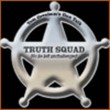Definitions of Stress
- stress n., v., stressed, stressing. -- n. 7. a specific response by the body to a stimulus, as fear or pain, that disturbs or interferes with the normal physiological equilibrium. 8. physical, mental, or emotional strain or tension. -- v.t. 12. to subject to stress. - Random House Webster's College Dictionary 1996, p.1319
- stressed-out adj. afflicted with or incapacitated by stress. - Random House Webster's College Dictionary 1996, p.1319
- stressor n. a stimulus causing stress. - Random House Webster's College Dictionary 1996, p.1319
Sources of Stress
- Stress is a regular part of life and new crises can precipitate new incidents.
- Grief psychologists tell us that one hour of emotional stress is as draining as three hours of physical labor (Theos magazine). - Kathleen R. Buntin, AMCAP, Volume 11, Issue 2, p.55
- Stress is an ignorant state. It believes that everything is an emergency. -- Natalie Goldberg (Wild Mind)
- Stress can come from unrealistic expectations.
- Many studies have suggested a link between self-disclosure and various dimensions of physical health (Blotcky, Carscaddon, & Grandmison, 1983; Cumes, 1983). Some of the most meaningful work on openness/hiding and physical well-being is that of Pennebaker and associates at Southern Methodist University in Dallas, Texas. Operating from a general psychosomatic model wherein they assumed that inhibiting or holding back one's thoughts, feelings, and behaviors was associated with long-term stress and disease (Pennebaker, Kiecolt-Glaser, & Glaser, 1988), they have conducted a number of very intriguing studies. They have found, for example, that behavioral inhibition is associated with increases in skin conductance level. This suggests that long-term behavior inhibition may be a factor in psychosomatic disease (Pennebaker & Chew, 1985). Pennebaker and Beall (1986) found that students who wrote about their most traumatic experiences had relatively higher blood pressure and a negative mood following the disclosure, but also had fewer health center visits in the following six-month period than did subjects who wrote about superficial topics. Pennebaker et al., (1988) also found that confronting the facts and emotions of traumatic experiences was beneficial to immune system functioning as measured by immunological assay. Writing or talking about just the facts of the traumatic experience—not feelings and emotions—did not result in the same positive outcome (see also Pennebaker, Hughes, & O'Heeron, 1987).
- Change, both good and bad, can create stress. Stress, if sufficiently severe, can lead to illness. The following tool is taken from the Journal of Psychosomatic Research. Doctors Thomas Holmes and Richard Rabe, psychiatrists at the University of Washington (Seattle), developed the Social Readjustment Rating Scale. In their study, they gave a point value to stressful events. The psychiatrists discovered that in 79% of those studied, major illness followed the accumulation of stress-related changes totaling over 300 points from the following table in one year:
| Death of a Spouse
|
100
|
| Divorce
|
73
|
| Marital separation from mate
|
65
|
| Detention in jail/other institution
|
63
|
| Death of a close family member
|
63
|
| Major personal injury or illness
|
53
|
| Marriage
|
50
|
| Being fired at work
|
47
|
| Marital reconciliation with mate
|
45
|
| Retirement from work
|
45
|
| Major change in health/behavior of a family member
|
44
|
| Pregnancy
|
40
|
| Sexual difficulties
|
39
|
| Gaining a new family member
|
39
|
| Major business readjustment
|
39
|
| Major change in financial state
|
38
|
| Death of a close friend
|
37
|
| Changing to a different line of work
|
36
|
| Major change in number of arguments with spouse (a lot more or a lot less)
|
35
|
| Taking out a mortgage or loan for a major purchase
|
31
|
| Foreclosure on a loan
|
30
|
| Major change in responsibilities at work (promotion, demotion, transfer)
|
29
|
| Son or daughter leaving home
|
29
|
| In-law troubles
|
29
|
| Outstanding personal achievement
|
28
|
| Wife beginning or ceasing work outside the home
|
26
|
| Beginning or ceasing formal schooling
|
26
|
| Major change in living conditions (ie building new home, remodeling)
|
25
|
| Revision of personal habits (dress, manners, association, etc)
|
24
|
| Troubles with the boss
|
23
|
| Major change in working hours or condition
|
20
|
| Change in residence
|
20
|
| Changing to a new school
|
20
|
| Major change in type/amount of recreation
|
19
|
| Major change in church activities
|
19
|
| Major change in social activities
|
18
|
| Taking out a mortgage or loan for lesser purchase
|
17
|
| Major change in sleeping habits
|
16
|
| Major change in family get-togethers
|
15
|
| Major change in eating habits
|
15
|
| Vacation
|
13
|
| Christmas
|
12
|
| Minor violations of the law (traffic tickets, jaywalking, disturbing the peace)
|
11
|
Stress on the Job
- Subjects in one study, particularly men, report their jobs and work to be a source of satisfaction, but at the same time a source of pressure and stress. They report getting, maintaining and progressing in a good job or career to be rewarding, but dealing with job pressures, getting turned down for promotions, firing employees, and getting one's business started to be very stressful.
- Occupations such as those in the transportation industry and military service often include extensive travel and family separation couple with the following stressors:
- long and variable duty days
- jet lag
- crossing many time zones
- poor fitness, problems with weight control due to sedentary occupation
- missing important family events
- loss of authority/control of family
- pilots like being in control
- trained to be in control
- spouses remaining at home are essentially single parents
- poor diet
- alcohol
- tobacco
- caffeine
- interruption of exercise routine
- interruption of hobbies
Stressed Workers Have Higher Blood Pressure Than the Rest, Denise Mann, WebMD Medical News,
Aug. 15, 2001:
-
You don't necessarily have to be in the French Foreign Legion for your job to be dangerous. You could be an accountant.
- Add 'on-the-job stress' to the list of heart disease risk factors that your doctor should regularly ask about, French researchers suggest.
- Most of us have heard about white coat hypertension, the phenomenon that occurs when the doctor walks in to check your blood pressure and it instantly shoots up. Now there's on-the-job high blood pressure, the researchers report in the July issue of the journal Hypertension: Journal of the American Heart Association.
- People who perceive their job as stressful -- whether they are secretaries, nuclear engineers, brain surgeons, teachers, or editors -- tend to have higher blood pressure while working than those workers who do not feel stressed-out on-the-job, according to Jean Pierre Fauvel, MD, of the Hôpital E. Herriot in Lyon, France and colleagues.
- The new findings boost a growing body of evidence suggesting that work-related stress including long hours, low reward, hectic pace, and lack of social support can increase a person's risk of heart disease by increasing their blood pressure.
- They also suggest that an "individuals perception of strain should be considered a cardiovascular risk factor," Fauvel concludes.
- But don't quit your job to protect your heart. Instead, make changes at the workplace or learn some coping techniques such as meditation or yoga, according to one American stress expert.
- To arrive at their finding, researchers measured worksite blood pressure in over 300 healthy individuals with normal blood pressure aged 18-55 who work for the same chemical company. Of these, 70 workers had their blood pressure monitored for a 24-hour period. Study participants also filled out a standard questionnaire assessing job strain and stress.
- Individuals who reported the highest job strain had a diastolic blood pressure (the second number in a blood pressure reading) that was about five points higher during working hours than that of their colleagues who reported less stressful jobs. But both groups had similar pressure after quitting time, the study showed.
- And the findings held even after researchers accounted for other variables that affect blood pressure such as smoking, alcohol, salt intake, and weight.
- "Over time, [such increases] certainly can influence heart disease risk," says Redford Williams, MD, the director of the Behavioral Medicine Research Center at Duke University Medical Center in Durham, N.C., and the author of several books including Lifeskills: 8 Simple Ways to Build Stronger Relationships.
- "One of the theories about how stress leads to cardiovascular disease -- whether hypertension or coronary artery diseases -- is through increased blood pressure or fight-flight responses under stress, and raising blood pressure even a little will increase heart disease risk," he tells WebMD.
- "Every step-up is a step-up in risk [and] if you spend a good part of your day at work and go around with a higher blood pressure, you are increasing your risk," he says.
- There are two basic things that you can do about on-the job stress, Williams tells WebMD, and both begin with identifying what it is about work that is stressing you so.
- "It could be something about the job that you can take action about, such as working at home occasionally or telling your officemate who is continually telling you all his problems that you'd just as soon not hear it," he says.
- Or, you could just change your reaction to perceived stress. "Saying 'I have to chill' rather than just going around feeling stress can make a difference," he says.
- "Say 'this is the way the office is' and meditate, relax, or exercise during lunch hour to take an edge off," Williams says.
- But remember, other habits that may seem to relieve stress such as smoking or going to happy hour on a regular basis may do more heart harm than good.
- "Every beer, high ball, or glass of wine a day past two raises your blood pressure [and] smoking or drinking lots of caffeinated beverages such as coffee or diet coke also compounds the situation," he says.
Stress in Relationships
- Marriage and raising a family can bring much satisfaction, but it also can be a major source of stress.
- Sometimes we don't recognize the stress or the burden of trying to do all of that simultaneously will put on our marriages.
- Strength without tenderness creates problems in relationships. Even as faith without works is dead, so is strength without tenderness. We seek a balanced life. Christ is the great example for us.
- Tenderness without firmness creates problems too. If we do not keep these two virtues in balance, we may fall for the "good guy" trap. Mercy cannot rob justice. A parent who raises children with tenderness but without firmness may raise tyrants.
Coping With Stress
- We may not always be able to change others or our circumstances, but we can always change the way we view them.
- No blame allowed! We are to accept the responsibility for our own moods, attitudes, and feelings. To make progress, we must not forever blame others for how we feel and behave.
- Good feelings come from good thoughts. To get rid of negative feelings such as depression, anger, resentment, we must change our thoughts. We must solve problems rather than continually ruminate upon them.
- Hold to realistic expectations, be careful of anticipations. It is possible to maintain our high expectations and still accept imperfect performance from ourselves and others. Let's not anticipate perfection now. Let's have the courage to be imperfect. There are few perfect answers in an imperfect world.
- Communication with spouse, employer, employees, and other significant persons is essential to avoid and reduce or eliminate stresses
- Weight control and exercise improves physical fitness which reduces stress and contributes ability to cope with stress
- Eliminate addictive substances -- alcohol, tobacco, caffeine and other drugs
- Eat a balanced diet
- Since even a balanced diet usually does not provide all required vitamins and minerals needed by the mind and body, vitamin and mineral supplements are critical
- Hobbies provide useful diversion from stressors and may help coping skills
- Belief in God coupled with religious instruction provides or improves coping skills for many people
Coping Successfully with Stress - Burton C. Kelly, AMCAP, Volume 6, Issue 3, p.22:
- Let's now look at the application of gospel principles to a significant psychological problem, perhaps the most significant, that of unhealthy psychological stress. Stress obviously lies behind all anxiety reaction, underlies depression, and is probably involved with every emotional difficulty we deal with. Let's look very briefly at 12 principles which I accept as being true and that are either derived from or supported by the scriptures. (Following each principle, I list a few of the key scriptures pertaining thereto.)
- I will not let my heart be troubled; as I think in my heart, so am I; I will think truths. (Prov. 23:7 and John 14:1 and 27) As the writer of Proverbs indicated, we are as we think in our hearts. As we think truths, we reap the fruits thereof; as we think irrational, unhealthy, untrue ideas, we reap the fruits of those. [p.23] Note carefully the Savior's blessing of peace found in the 14th chapter of John. "Peace I leave with you, my peace I give unto you: not as the world giveth, give I unto you. Let not your heart be troubled, neither let it be afraid." (Bold added) This could be very threatening to think that in order to be troubled or afraid I have to let myself be troubled or afraid, yet it is very comforting also, for it suggests that I have the power within me to modify my feeling. I am in control. As I think, so am I. The next principle is a direct corollary.
- I create my own stresses; therefore, I can uncreate and prevent them by living the laws of peace. (Luke 2:13-14, John 10:10, D&C 130:20-21) Again, this is potentially an extremely threatening statement, but also a most comforting one. While pressures may come from the outside, internal stress is caused by how we receive and interpret those pressures, and they can be either a curse or a blessing to us. The mission of the Savior and the gospel is to bring us peace and an abundant life. This is derived by obedience to the specific laws pertaining to peace. Note that in D&C 130:20-21 the Lord states, "There is a law, irrevocably decreed in heaven before the foundations of this world, upon which all blessings are predicated and when we obtain any blessing from God, it is by obedience to that law upon which it is predicated." Contrariwise, we can't become anxiety laden without obeying the laws of anxiety. You, no doubt, have had people say to you, "I pay a full tithing, pay my fast offerings, go to church every Sunday, accept and try to magnify my callings, and therefore why am I depressed? [anxious, or whatever the problem may be] Is the gospel not true?" This fallacious interpretation results from not noting carefully what the scripture states -- that every blessing is obtained by obedience to that law upon which it is based. I've developed a gross and perhaps somewhat dumb analogy to emphasize this point. Suppose we have a person who's had no previous experience with gardens decide to follow the counsel of the Prophet and plant a garden. It being late in the season, he doesn't take the necessary time to learn about the various seeds. To save money, he buys in bulk rather than by package. His family really loves corn so they plant a lot of corn, presumably. After three weeks or so he invites one of the neighbors over to look at his beautiful corn crop. The neighbor makes no response and after feeling additional pressure to respond, embarrassedly states, "Well, John, I'm sorry to say this, but that isn't corn at all. That's watermelon." The neophyte gardener then says, "Well, how could that be? I'm an active member of the church, I'm following the counsel of the prophet, I'm as obedient as I know how to be to the Gospel. How could the Lord allow that? Well, my family and I will fast and pray this weekend that the Lord will change that watermelon to corn." Please do not take this as being sacrilegious or overly facetious about a sacred principle. Yes, the Lord could change that watermelon to corn if he wanted to, but ordinarily he doesn't and won't. Why? Because he wants us to learn the specific laws and be obedient to the laws. If he lifted from us all of our depressed moments, our anxiety reactions, etc. when we prayed and fasted for such, he'd be doing us a great disservice. We would not learn the laws of peace and happiness. He allows us to take consequences in order that we might learn more effectively. I think our prayers and fasting would be more effective if we asked the Lord to help us to know the laws which we need to follow in order to have the peace that we desire.
- I will prepare myself well for my responsibilities, including spiritual preparation, so that I shall not fear. (D&C 38:30, Isaiah 57:20-21) Yes, the Lord promises us that we shall not fear if we are prepared. My experience suggests that we must not only be prepared to deliver a talk, to perform a given act, but also must have our hearts and spirits right, must be speaking and serving for the sake and blessing of others rather than to obtain adulation and glory. If we are truly prepared spiritually and for the specific task at hand, I submit we shall not fear.
- I will develop increasing love for others and myself and let virtue garnish my thoughts unceasingly that my confidence shall wax strong. (D&C 121:45-46, Matt. 22:36-40, Romans 14:22, Moroni 8:16) Perhaps the best key that I know of to having healthy self-confidence is "Let thy bowels also be full of charity toward all men, and to the household of faith, and let virtue garnish thy thoughts unceasingly; then shall thy confidence wax strong in the presence of God...." And may I suggest also, self-confidence in the presence of others. Yes, perfect charity does cast out all fears, (Moroni 8: 16) and, as Paul told the Roman saints, we are to have faith in ourselves not condemn ourselves. (Romans 24:22)
- I can do no better today then my today's best; my best tomorrow will be better. (2 Nephi 28:30) The Lord does give us line upon line and precept upon precept. We often act as if we should have been able to make the decisions of yesterday with the knowledge that we received today or should have been able to perform yesterday's skill with the skill that we have developed today. In the process of so thinking we berate ourselves and suffer anxiety. If only we would remember that the best we can do today is in accordance with our present knowledge and skills of today.
- I believe in becoming perfect; I also believe in the law of eternal progression (President Joseph Fielding Smith quote from McConkie, Bruce R., Doctrines of [p.24] Salvation, 1955, Vol. 2, pp. 18-19) I have often startled and quickly obtained the full attention of some devoted Latter-day Saints by asking them why they didn't believe in the gospel. Both perplexed and somewhat irritated, they ask, "What do you mean?" I respond that they have been telling me in nearly every sentence that they believed that they had to be perfect today and since they weren't, they were worthless, but that they didn't really believe in the law of eternal progression. If they really believed in that law in a functional rather than in an abstract sense, they wouldn't have the problems they had just cited to me. I then cite the quote of President Joseph Fielding Smith from the reference above. "I believe the Lord meant just what he said: that we should be perfect, as our Father in Heaven is perfect. That will not come all at once, but line upon line, precept upon precept, example upon example, and even then not as long as we live in this mortal life, for we will have to go even beyond the grave before we reach that perfection and shall be like God. But here we lay the foundation....It is our duty to be better today than we were yesterday, and better tomorrow that we are today....If we are keeping the commandments of the Lord, we are on that road to perfection, and that can only come through obedience and the desire in our hearts to overcome the world."
- I will do all things in order and be diligent, but not attempt to run faster nor labor more than I have strength. (Mosiah 4:27, D&C 10:4, Luke 10:39-42) Yes, in order to achieve the prize, we must be diligent, but it is not requisite nor desirable, in fact it is undesirable, that we should run faster than we have strength. However, "all things must be done in order." I have repeatedly reminded myself of that verse and continue to do so as needed. Note also the Savior's counsel to Martha regarding Mary's work in Luke 10:39-42.
- I will have Godly sorrow for my sins that leads to repentance, not the sorrow of the world; I will keep my eye on the next time, not the last time. (II Cor. 7: 10) This statement of Paul to the Corinthians is a most beautiful one. Probably most of the people who come to us are initially expressing the sorrow of the world rather than godly sorrow. A good way to distinguish between the two is that in godly sorrow we look only at the past long enough to learn how to do better the next time, and our focus is on the next time rather than the last time. This focus strengthens us and helps us to do better in the future while worldly sorrow, focusing on the last time, keeps us in the failures of the past. It is like driving too fast over a bad road, hitting a chuckhole and then continuing to drive forward while looking backward through the rearview mirror saying, "Oh, that was a horrible chuckhole I hit. I wonder if my springs were damaged, my axle cracked. I should have been driving slower," etc. What's likely to happen? Of course, a more serious accident and more problems. Similarly, our emotional lives get more troubled and problem ridden with worldly sorrow.
- I will remember to live by "want to" rather than "have to." (2 Nephi 2:26-27, Helaman 14:30-31, D&C 58:26-29) Yes, we do have our free agency, we really do, and the power is in us to do many things of our own free will. As we examine carefully what we do, we see that we really do live by "want to's." Everything you and I do is because we want to do it. There isn't anything we do that we have to. While you may question that, think about it. For example, even if you are a bishop, you don't have to go to church on Sunday -- no, you don't. If you want to remain a bishop, you need to go to church on Sunday, but you don't have to go to church unless you want to remain a bishop. That is, we do what we do because we want the consequences of those actions. Yes, lots of times we would like to be able to do other things and get the desired consequences, but we do what we want to because we prefer the consequences we get or think we'll get by following a given course of action. Just telling ourselves regularly, particularly when in a stressful situation, "I'm doing what 1 am because I want to rather than because I have to" gives a whole different feeling about what we're doing and dramatically reduces stress. This is not just a play on words; it has significant impact.
- I am responsible for my behavior but I cannot or will not attempt to control the agentive behavior of others. (D&C 121:41, Moses 4:1-2, Ezekiel 18:4, 14-20, 33:7-9) Many of our problems result from thinking, at least at a subconscious level, that we can control the behavior of others and, being in control of others' behavior, we are fully responsible for their behavior rather than realizing that they had at least some responsibility for their own behavior. It is true that in certain instances we can physically control the behavior of others by physically moving them, particularly children, but we cannot control the agentive behavior of others, what they think and feel, and hence, how they act. We can influence others' behavior, however, and are responsible for that influence, and hence, are responsible for our behavior. Note carefully what the Lord said, "No power or influence can or ought to be maintained by virtue of the priesthood, only by persuasion, by long suffering, by gentleness and meekness, and by love unfeigned...." (D&C 121:41) There is only one way that we can, let alone ought to, maintain an influence on the behavior of others.
- I will live the spirit of the Word of Wisdom. (D&C 89, 88:124, Luke 2:52) Yes, only if we get proper rest, eat properly, exercise appropriately, etc. do we enjoy the necessary physical health essential to emotional well-being and peace. We are promised that we will be able to "run and not be weary. " (D&C 89:20) Just a question to ponder -- if we don't run, how do we know if that promise will be fulfilled?
- I will focus my life on the Savior, learn of Him, become "meek and lowly of heart," and I shall have peace in Him. (D&C 19:23, Matt. 11:28-30) I believe that herein is the key to the heart of the gospel. We do need to focus our lives on the Savior and learn of Him. For many months I have quoted Matt. 11:28-30 to myself at least once a day -- because I have needed it! "Come unto me all ye that labor and are heavy laden, and I will give you rest. Take my yoke upon you, and learn of me; for I am meek and lowly in heart: and ye shall find rest unto your souls. For my yoke is easy, and my burden is light." To take the Savior's yoke upon us, or to be fully and unreservedly committed to obey His commandments and follow the counsel of His leaders is critical. To learn of Him and to understand and obtain His meekness and lowliness of heart is likewise critical. When I am being criticized, when do I get upright, angry, or upset at my critic? Only when I am not meek and lowly in heart. When my total desire is to grow and to help others grow, when my total desire is to learn and help others to learn, then when I desire to be the greatest blessing in the lives of others, I am not defensive. I am not uptight. I do not get angry. It is when I want others to think certain things about me such as how great I am or to really like me and my ideas, etc., and when I don't want to think about changing and growing, that anxiety and other negative feelings arise.
Eugene T. Buckner, AMCAP, Volume 9, Issue 4, p. 16-17:
- Stress is recognized by both medical and behavioral scientists as being one of the most serious problems of the day. Stress means different things to different people, and at present we don't always know what is meant by the term, but we are learning of its impact on people. Even though questions remain, we do know that life would probably not be very productive without some stress. It also appears that there is a relationship between psychosomatic, or physical complaints, and the growing pressures our lifestyle seems to encourage.
- Through the development of modern technology and refinements in psychological technique, there is a more unified understanding of the problem of stress-induced psychosomatic concerns than has existed previously. Both medical practitioners and behavioral scientists are aware of the capacity of the human body to respond to situational stress; however, it appears that the threshold to initiate such a response is lower than previously thought.
- There has always been a capacity within the individual to respond and adjust to pressures; however, the process as it pertains to stress is unclear. One of the most widely accepted theories has been offered by Walter Cannon (1929), who proposed that the body has two approaches to the resolution of conflict. One is to stand and fight, the other is flight, to run or move away from the situation. In either instance, the body's response is essentially the same: adrenaline is secreted into the blood stream, and the muscles prepare for action. Under situational conditions the change becomes very obvious. Under chronic conditions the change is less pronounced since those changes which occur are introduced over a longer period of time and change is gradual with the feelings that occur being perceived as normal. The physical design for flight or fight was adequate for the lifestyle of early man. His world was simple, uncomplicated, with mostly perceptible problems that were resolved with tangible or concrete solutions. There was time for him, after resolving the conflict, to regenerate his physical capabilities before taking on another crisis. With our present complicated world, however, we move from one crisis to another; and, for many, crises are lined up just waiting to be attended to. These are often difficult, abstract problems which are exhausting emotionally as well as physically. This constant drain results in the physical and psychological deterioration of the individual.
- For many years the pressures connected with the world of activity were felt mostly by men; however, with changes in roles, women are also manifesting problems which are closely tied to the stressful lifestyle we have come to expect. Heavy contributors to such pressures are digital watches, computers, air travel, heavy financial obligations and indebtedness, increasing demands for people to adopt Type "A" behavior, and more compact schedules, allegedly with more efficient ways of solving problems. With the intense pressure this rapid-fire living presents every sector of our society, it is little wonder that we find more people who feel they are overwhelmed and reaching the point of overload.
- As pressures in society become more critical and crises more frequent, it becomes more difficult to find ways to escape the ever-present pressures of daily living. Although stressful demands have long been recognized as contributors to such problems as stomach ulcers, tension, and migraine headaches, etc., it is becoming more evident that prolonged stress also affects other systems. The impact on the cardiovascular, digestive, and skeletal-muscular systems seems to be extensive. There is a growing trend among medical practitioners to associate physiological problems with psychological etiology. Several prominent physicians (Maultsby, 1979; Rahe, 1979; Stroebel, 1979) and numerous family practitioners report that as much as 75 to 85 percent of their practice is stress related—often the result of self-imposed expectations and a compulsion to please rather than the result of organismic or viral intrusion—yet the treatment offered more often than not is to medicate to eliminate the symptoms rather than to focus on the psychological cause.
- Stress, of course, is not all negative either in cause or effect and few of us would be willing to remove the exhilaration of a new birth or other appealing experience connected with positive stress to avoid the negative stress also associated with such experiences.
- Stress isn't an "either-or" condition. Hans Selye (1978), the person credited with identifying the stress or General Adaptations Syndrome (GAS), has also termed positive stress as "eustress." Charles Strobel (1979) of Yale University School of Medicine suggests three levels of stress. The first he calls adaptive stress. This is the stress which helps us to move each day in ordinary ways. It becomes a motivator for us. The second is reversible stress. This is the stress which tends to impact on us as we approach deadlines, or because of extended procrastination find ourselves in a bind which is difficult to resolve: however, when resolved, the person resumes normal functioning. The third he calls irreversible stress. This is the stress which becomes so intense that the individual experiences severe physical or emotional trauma which often permanently reduces the individual's ability to function. When this occurs, one feels that he/she is overloaded. Festinger (1957) refers to the resolution of such pressure as dissonance reduction. Another school of thought speaks of the process as the individual's effort to return to a state of equilibrium or homeostasis; another describes the phenomenon as tension reduction.
- Whichever model you choose, it becomes rather clear that when under stress, the individual attempts to resolve the conflict. If it remains unresolved, permanent physical or emotional damage can be incurred.
- Many have addressed the issues of increasing stress in our society, the causes of stress and the reasons why it is increasing for many. Stress can be blamed on several factors, yet, at best, these seem to be only hunches. It is becoming clear that stress is an individual problem; what is stressful to one may not be stressful to another. Some general kinds of hunches include schedules that are very demanding, almost impossible to satisfy and have only limited negotiable variances; situations in which experience falls far short of expectations; feeling trapped with no possible way to resolve the trap one is caught in; the trend in our society which places strong emphasis on the desirability of Type "A" behavior; and a cultural system which caters to the forces which foster stress rather than minimizing it. There is little demand in our society for Type "B" behavior. Another generator of stress is the impression that time can be scheduled and controlled to the very second. Such precision tends to make people believe they can have control over their schedules, and when they overextend themselves, stress is the result. The person who is essentially Type "B" but feels obligated to behave as Type "A" is likely most vulnerable.
- To medicate for resolution of stress is only temporary unless circumstances are changed. With the exception of the antibiotic medications, most modern drugs do not treat causes of problems; instead, they raise the physical threshold so that the symptoms are no longer obvious, permitting the patient to feel less uncomfortable and in many instances believing they have been made well (Wolley 1983). Medication should be used for its benefits, but it should be used with its limits understood rather than promoted as a cure. With the medicated approach, as the individual feels better and begins to again assume additional responsibilities while taking the medicine, the effects of the dosages prescribed no longer control the symptoms and the old problems return. When this happens, the medication dosage must either be increased to get a more effective dosage or a new medication prescribed which is more potent—one that will again control the symptoms. In either case, if the problem is psychological, the correction is temporary unless the etiology of the problem is included in the treatment approach.
- Two factors seem to be critical in minimizing stress and its effects. The importance of either is probably determined more by the individual and particular circumstances than by one being more crucial than the other. One factor is how well the person is able to remain within their comfort zone. The concept of the comfort zone is a by-product of Selye's (1978) work. Using his concept of the turtle and the racehorse and an arbitrary scale of 1 to 10, letting the turtle-type response be assigned a value of 1 and the racehorse-type response assigned a value of 10, where on this scale does the person place him or herself? This model suggests that a racehorse person who finds him/herself in a very slow, deliberate environment may express stress equal to or greater than that experienced by a turtle-type person who is placed in a very busy, demanding, scheduled environment. The problems of stress seem most debilitating when the individual is locked into being someone he is not. The important point, then, is for people to find an environment which is as close as possible to the lifestyle which is most healthy for them. When such a setting has been identified, it might mean that the person will decide that they don't "need" to be on such a busy schedule, nor do they "need" to utilize every moment of the day in an attempt to please everyone. Instead, they can discover that it can be pleasant and rewarding to smell and enjoy the rose or stop to watch the sunset. It may also mean that it is not necessary to become involved in transcendental meditation or yoga, or some other environment-altering approach. The important point is that the person is learning to control his/her environment rather than letting the expectations of the circumstances which are around them dictate their lifestyle.
- A second factor ties in very well with many of the present cognitive psychological models. The present understanding is that physiology and psychology are inseparable. It is accepted that the physiological response of the individual is directly tied to his psychological perception. If the person's perception or belief is one of inferiority, that person feels inferior regardless of the incoming cues because the individual continues to perceive him/herself as being inferior. If one's perception is frightening, then the resultant feelings are those of fear. Through the use of cognitive models such as the Rational Emotive model of Ellis (1973), the Rational Behavior Model of Maultsby (1975), Beck's (1976) Cognitive Model for Depression, or other comparable approaches, the psychologist can help the individual to recognize and eliminate the cause of one's stress rather than merely treat the physical symptoms. This is not to say that the skills of the physician are not needed; certainly, there needs to be an assurance that any physical problems have been reviewed and necessary action taken for their correction. However, for a problem with a psychological etiology, the behavioral scientist is, perhaps, the practitioner of choice.
Gerry Hanni, AMCAP, Volume 11, Issue 1, p. 82:
- Here are ten examples of methods to encourage catharsis or ventilation of emotion:
- Writing the undelivered letter. This letter can be to the offender or to the mother. It should deal with feelings as well as facts. It is beneficial for the individual to read it aloud to the group or to the therapist—with full vocal inflections.
- Journal writing as a directed activity. The reason it should be directed is that the emphasis needs to be on remembering and recording the abuse along with associated feelings and affects. Otherwise, extraneous detail will fill the pages, and that is not the point. A record of significant occurrences at different life stages is also valuable—a directed life history that helps the clinician understand lifestyle patterns. Sentence stubs and questionnaires can be used for recall and to help reach deeper levels. For example, use such things as open-ended sentences. "When I remember Dad, I think…I remember Mother saying…I want to tell Dad…or, I see myself as…" Either written responses or verbal responses will help a client get in touch with her feelings.
- Art. Art has been traditionally used with children; however, this technique can also be used with adult women to help make implicit feelings explicit. It allows victims to give symbolic expression to conflict and impulses. Drawing the offender, or drawing a self-portrait at the age the abuse first began, is very therapeutic. We also find it effective to draw a floor plan of the room or rooms where the abuse took place, coupled with verbal descriptions. Also, the mandala drawing is a technique which is a rendering of the self. Within an outlying circle, the participant draws marks, forms, or shapes in various colors, starting in the center and working outwards to represent her inner self. She then turns the sheet over and writes what she did, what she revealed about herself, and how she felt while doing it.
- Poetry. Especially poems with regular rhythms where the focus is on sound rather than on content, and nonsense poetry are helpful because of stimulating the emotional response. Writing poetry either in group or individual therapy unburdens and reduces anxiety.
- Gestalt techniques. The empty-chair exercise involves asking the victim to face the perpetrator or her mother. It is important to create a tension-free atmosphere with breathing exercises and deep muscle relaxation before using this technique. A variation is using two [p.83] chairs and having the victim alternate sitting in them, speaking for herself and then responding as the offender or her mother.
- Written dialogue between parts of the self. For example, the victim may choose a dialogue between the controlled self and the out-of-control self or between the self and body parts that are disliked because they were part of the abuse. One client talked so much about her hands and how she hated them, that we decided to do a verbal dialogue. She took the part of herself, and I took the part of her hands. As we talked, she suddenly broke down and cried uncontrollably for a long time, and finally said the reason she hated her hands was because of what they were forced to do when the sexual abuse was taking place.
- Bibliotherapy. Using first-hand accounts of other incest victims can be helpful in reducing the feelings of isolation and loneliness. There are several on the market. I suggest that you read them first so that you know if it is the type of thing you want your client to read. Some are better than others, but most of them have some material that could be offensive.
- Positive affirmations to effect positive self-image. The client is asked to repeat to herself several times a day, "I am a good and capable person," or other such phrases. Adele Mayer in her book suggests "the okay script" to alleviate negative feelings about self. She writes a relatively long script full of such things as, "I am a good person," "I am not responsible in any way for what happened sexually between me and my dad." The clients read them each morning and night. Calling herself a "survivor" instead of a "victim" is another way she can give herself a positive message.
- Relaxation techniques. They are also important to reduce stress and anxiety. They are based on the theory that it is not possible for the body to experience relaxation and tension at the same time. Guided imagery is very helpful to attain the relaxed state.
- Assertive behavior. Assertive behavior can aid the client to leave her position as the helpless victim. She responded to her previous role of learned helplessness with disguised anger and passivity. As she learns to make her needs and feelings known to others in an open and honest manner, she can become a more mature person, in charge of herself.
Garth L. Allred, AMCAP, Volume 13, Issue 1, p. 20
- When under...emotional stress, the natural man will tend to overreact or under react. He will either attack his perceived enemy or run. These defense mechanisms take on many forms and are often discussed in psychological literature. To LDS thinking, they are figurative fig leaves. It may be remembered that it was Satan's suggestion that Adam and Eve don fig leaves—not very good covers for their self-consciousness and nakedness. The Lord had a much better plan for their comfort; he provided coats of skins which represented light and truth. The fight/flight mechanisms are only fig leaves, false comforters, and mirages, because they seem to give temporary relief to the stress, but in the end they escalate the stress through the stages of vicious cycles. These behaviors are devilish because they are Satan inspired; they are contrary to the plan of happiness; they rob us of light and truth; and they do not reflect charity for ourselves or others.
- An example of this process would be the alcoholic who chooses to drink to placate feelings of worthlessness (arising from ignorance of his own divine origins, worth, and power to solve problems); then in his drunken stupor he abuses his wife and children; his self-esteem is then further lowered; he drinks more and more until he is emotionally and physically destroyed.
- Because the over -- and under -- defense mechanisms give only the illusion of problem solving, the tension and anxieties increase to an intolerable level in the body. Like revving up a car engine and not putting it in gear to move forward, the body builds up stress to the point where something has to give. Psychogenic pain and other related disorders have been associated with unabated stress. Such patients [p.21] typically complain of physical symptoms such as headaches, backaches, insomnia, allergies, ulcers, TMJ, obesity, stuttering, impotence, palpitations, substance dependency, and similar maladies.
Gary Carson, AMCAP, Volume 5, Issue 2, p. 10:
- Obviously maladaptive behavior exists in other than the lower forms of animal life. We have only to look at what is happening in the human condition to recognize that not all of our behaviors are consistent with the instinct for perpetuation of the species. On the more overt, blatant level we can see that homosexual conduct will not perpetuate the species. Yet, it would appear that we are becoming more tolerant, understanding, or supportive of those who choose the homosexual life-style. We recognize that taking life does not perpetuate life, yet over recent years, perhaps decades, crimes of violence, including murder have been on the increase. At more subtle levels, we know that human beings are happiest and most productive when they live constructive, adaptive lives; yet, how many seem to engage in self-defeating, maladaptive behaviors? How many want friends and yet have developed obnoxious behavior patterns that offend people and prevent them from attaining what they most desire, love and companionship? How many create depression for themselves because they have not acquired the skills necessary to deal constructively with their anger and so try to keep it all bottled up inside, only to find that the only way they can do this is to develop apathy or depression? How many choose to worry, choose to engage in thought processes that keep them anxious and upset -- and ultimately develop a full-blown psychosomatic disorder as a result? Ulcers are only one of many disorders which stem from inability to manage stress. How many become delinquent, or on a more imperceptible level, become very keen manipulators who get what they want without risk, never risking or disclosing themselves and so go through life not really known, loved, or appreciated by others? How many feel alienated, alone, empty? Are not these conditions reflective of persons having acquired maladaptive behaviors that either reduce the likelihood that the species will ultimately survive or reduce the productivity and contentment of those who live? The conclusion that man is not exempt from maladaptive behavior seems warranted. How then did man acquire his maladaptive behavior and why does it exist?
Gary L. Carson, AMCAP, Volume 6, Issue 2, p. 24:
- Considering the context of these scriptures we find the following: In the 136th Section, the Lord is revealing among his last words in the formal scripture of the Doctrine and Covenants, His directions for the manner in which the saints are to conduct themselves as they leave Winter Quarters and head west. Among His instructions are some relative to the expression of emotions and how the saints were to cope with emotional stress. In verse 28 He says, "If thou art merry, praise the Lord with singing, with music, with dancing, and with a prayer of praise and thanksgiving." In verse 29 He says, "If thou art sorrowful, call on the Lord thy God with supplication, that your souls may be joyful." In verse 28 He says if you're happy or joyful -- express it. In verse 29 He says if you're not happy -- get that way. Clearly the Lord seems to want His people to be happy, to be joyful. It would seem that this is good not only for the people themselves but it helps the Lord to get His work done. What therapist, or anyone else for that matter, ever heard of sorrowful, depressed people accomplishing much? God needs happy, productive people to do his work -- to serve him in the process of getting others to progress.
James D. MacArthur, AMCAP, Volume 7, Issue 3, p. 26
- Perhaps in these times of great stress we can become what we ought to be in terms of our relationship with our wives, in terms of a focus, but perhaps the eternal "every day" causes some of us to be more casual than we ought to be. Of course, we love our wives, but perhaps sometimes we also take them for granted too much of the time. Perhaps too often we fail to express our appreciation to them in little ways. I know I do. We could certainly show more affection and always look upon our companions with love and respect. We can surely be polite and courteous if we try. We can nourish and cherish them. The simple fact is that few of us could function nearly as well without the support of a gracious and loving wife. They make our homes the heaven on earth which they are. How can I expect God to honor me and be pleased with my service if I do not honor and cherish my very own companion?
- The psychotic person handles stress by escaping. He makes a massive change in his reality, adopting a whole new dimension of things. He creates a fantasy situation that puts him grossly out of contact with what really is. He does this to escape from pain. In time, he becomes addicted to his fantasy life; his fantasy protects him from hurt, from the agony of his deprivation. His fantasy life gives him substitute love supplies in place of those genuine supplies he does not find in real life.
- And the style works, somewhat adequately anyway. Extreme psychotic people tend to lose their anxiety. They will rarely have ulcers, colitis, nervousness, stuttering. Their fantasy worlds are so massively powerful, so mutating to their real selves, that anxiety is rare. But their fantasy style shuts off their sensitivities and their awareness.
- Neurotic substitute styles such as crying payoff in relief from the stress of tension. Nervousness and [p.27] excitement usually bring help from others and crying does relax us and bring sleep. All of these neurotic styles are, in some way, attempts at securing love reinforcement, securing a temporary illusion of solution or an acceptable escape from a situation that is painful.
Willis and Fondren, AMCAP, Volume 8, Issue 2, p. 19
- Burnout has been defined with variations as a debilitating psychological condition affecting individuals who work in high stress jobs, brought on by the cumulative effects of prolonged stress. The burned out homemaker may indicate burnout by:
- Loss of concern for her children that in the extreme evolves into cynical hostility and a demeaning perception of herself, which in turn lead to increased guilt and self-depreciation.
- Deterioration of the quality and sometimes quantity of care offered to children.
- Emotional isolation from children, homemaking chores, and duties. This can be expressed by increased involvement in outside work, church work (often during daytime hours), or increased time spent in the home but with little accomplished.
- Correlations with drug and alcohol abuse, neurotic and psychotic symptoms, suicide attempts, family conflict and disorganization.
- Lowered morale, higher rate of sickness, lowered productivity and a high desire to break out of the marriage, family, and/or church.
- Physiological changes such as higher blood pressure, poor appetite, insomnia, and psychosomatic symptoms (Daley, 1980).
- There are additional symptoms such as: irritability, exhaustion, desperate measures to deal with routine problems, impatience, distrust, resignation, withdrawal, apathy, negativism, lack of attentiveness, cynicism, decreased energy and motivation, and increased distance from husband and children. After reviewing these symptoms and characteristics, it is easy to understand how one can misdiagnose cases of burnout and depression (Lewis, 1980).
- It was also determined that there are higher rates of burnout among:
- Younger, inexperienced homemakers—especially those homemakers who compare themselves with older and seemingly better women and mothers, and try to live up to the myth of the "perfect mother in Zion syndrome."
- Homes where there are many children and the leadership is autocratic—such as the father being the all-knowing patriarch, who dispensed "wisdom and counsel" without first understanding the situation and without recognizing free agency.
- Homes where patriarchal structure and support are lacking at key times—such as the active husband who always finds time for his "important" church meetings but rarely has time to really play and be with his children and wife consistently.
- Homes in which the homemaker does not know what is expected of her and communication of family rules and regulations is unclear. These families are usually characterized by patriarchal leader dominance.
- Homes in which there is little autonomy for the homemaker, few opportunities to use innovation, and low spouse support. This can be illustrated where the needs of the wife and children rotate basically around the needs of the husband.
- Homes in which the mother is overly conscientious and has too high an expectation of herself.
- Homes in which the homemaker has not learned to set priorities or when she does follow her own priorities, and feels guilty for not doing more (Lewis, 1980).
Allen E. Bergin, AMCAP, Volume 9, Issue 3, p. 10
- [Stress coping skills] were found by Galanter, Rabkin, Rabkin, and Deutsch (1979) in a study of changes in neurotic distress in 237 members of the Unification Church; by Galanter and Buckley (1978) in an evaluation of diminished neurotic symptoms and drug and alcohol use in 119 members of the Divine Light Mission, who had religious experiences; by Ness and Wintrob (1980) in a study of decreased emotional stress in 51 members of 43 Pentecostals, who experienced faith healing—"the more frequently people engaged in religious activities, the less likely they were to report symptoms of emotional distress," p. 202; by Pattison and Pattison (1980) in an examination of profound changes in sexual deviation following conversion experiences; and by Womack in an analysis of therapeutic effects of a Pentecostal church on alcohol and drug addicts. In commenting on the puzzling relationship between what appears to be primitive experiences and the dramatic results that sometimes show up in behavior and mental status, Marks (1978) suggested that studying these phenomena objectively is crucial because their potency, compared with psychotherapy's potency, looks like atomic power compared with dynamite.
References
- Allred, Garth L., AMCAP, Volume 13, Issue 1, p.20-27
- Beck, A. Cognitive Therapy and the Emotional Disorders, New York, International Universities Press, 1976.
- Buckner, Eugene T. "Stress: The Individual Conflict," AMCAP Convention, 30 September 1983, AMCAP, Volume 9, Issue 4, p.16-17
- Buntin, Kathleen R., AMCAP, Volume 11, Issue 2, p.55
- Cannon, W. B. Bodily Changes in Pain, Hunger, Fear, and Rage (2nd ed.), New York: Appleton-Century-Crofts, 1929.
- Ellis, A. Humanistic Psychotherapy, New York: Julin Press, 1973.
- Festinger, L, A Theory of Cognitive Dissonance, Evanston, Ill.: Row-Peterson, 1957.
- Hanni, Gerry, AMCAP, Volume 11, Issue 1, p.82-83
- Kelly, Burton C., "Coping Successfully with Stress," AMCAP, Volume 6, Issue 3, p.22
- Maultsby, M. C. Jr. Help Yourself to Happiness Through Rational Self Counseling, Institute for Rational Living, New York, New York, 1975.
- Rahe, R. "Stress and Life Change Unites," Workshop presented at Brigham Young University, Provo, Utah, March 1979.
- Selye, Hans. "On the Real Benefits of Eustress," interviewed by Laurence Cherry, Psychology Today, Vol. 12, p. 60, March 1978.
- Stroebel, C. F. "Stress Management, Biofeedback and Behavioral Medicine Workshop," Proseminar Institute, Seattle, Washington, Sept. 1979.
- The Stress Doc - http://psychcentral.com/cgi-bin/dir/jump.cgi?ID=134
- Ol' Buffalo Psychology Page - http://www.three-peaks.net/psych.htm
- Annette Nay, Counselor - http://www.annettenay.com
|






















































































